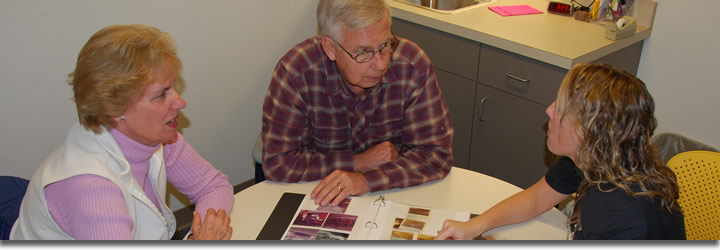Faculty senate approved several course changes in the speech pathology department last Monday night in response to increasing popularity among incoming students.
The number of speech pathology and audiology (SPAUD) students jumped from 104 to 155 this fall, forcing Calvin exclude more students than expected from entering its master’s degree program.
Last year, SPAUD began offering a five-year master’s degree program alongside its four-year bachelor’s degree program.
However, the master’s program can hold only 25 students — a system that cannot currently sustain the 48 first-year students who entered the program this fall.
“We don’t have the resources and we need to keep a graduate class of 25 for accreditation,” said professor Judy Vander Woude, director of SPAUD.
The course changes make the bachelor’s degree program better for students who will be attending graduate school elsewhere. Calvin will also form an application process for students to enter the master’s program.
Vander Woude expects applying students to know by the middle of their sophomore year whether they will be in the four- or five-year program.
However, since the expansion adds new courses, SPAUD needed to eliminate in other areas to help balance the changes.
SPAUD eliminated both sign language courses from the curriculum.
“That was a tough decision,” said Vander Woude. “But we’re in the age of prioritization and being economical. We need to be diligent about how we’re managing, so we had to make a tough choice there.”
The elimination is mentioned only briefly in the faculty senate report — saying that the classes were eliminated “to maintain efficiency” and because other school’s programs rarely required them.
“We looked at what graduate programs really want in their applicants and sign language never showed up,” said Vander Woude.
Sign language classes were under the SPAUD program, but often drew students from other disciplines, like education.
However, Vander Woude said that she didn’t expect any students to come to Calvin specifically for those courses and that other nearby schools offered similar courses.
One major addition that brought about the sign language cut was splitting a current course on speech and hearing science into two individual courses: speech science and hearing science.
“We realized, when we assessed our fourth-year students, that [students] didn’t have a good sense of speech and hearing science. They were missing some blocks of information in their knowledge,” said Vander Woude.
Since hearing science is an important part of industry standards and national exams, the department “took this lack of knowledge seriously,” according to the faculty senate report.
The previous class emphasized speech science more heavily, so Calvin divided the course into two classes to help students focus more on hearing science too.
The changes in the bachelor’s program also open up the opportunity for students to take more elective courses — a luxury in a credit-heavy program like SPAUD.
Freshman Eleanore Chan plans to enroll in the four-year program in order to pursue a Chinese minor and extra psychology classes.
“I want to have a more overall learning and growing experience rather than focusing solely on my major,” she said. “I may be able to use what I learn in other classes and integrate it into speech pathology.”
She plans on attending graduate school closer to her home in Illinois.
Meanwhile, freshman Lauren Clark entered the early admissions program, which means she is guaranteed a spot in the master’s program.
“I am very glad to be in the five-year program because Calvin has a great master’s program,” she said. “I get to complete my schooling faster and begin working faster.”
But she isn’t worried about the increasing number of students.
“There are plenty of other graduate schools, so Calvin can afford to be more competitive,” she said.
So what does the future hold for Calvin’s SPAUD program?
Vander Woude isn’t sure, but thinks the number of students may continue to rise.
“Is this a blip on the screen?” she asked. “I’m guessing not, because there’s a job at the end of the rainbow. I’m guessing it will be a bump next year, but I don’t know how to predict.”
She said that the stable job market for SPAUD graduates makes the program attractive.
“Every single person who graduates has a job within two months, if not before they graduate,” she said.








